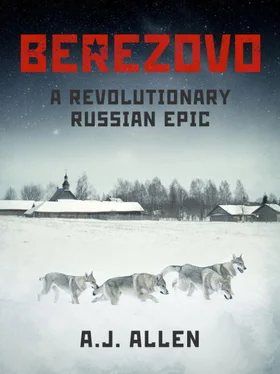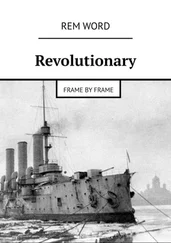The Mayor spoke for them all.
“My God!”
“Exactly!” responded Izorov grimly.
“But why us?” complained Skyralenko. “We don’t have the facilities for these people. To begin with…”
“One thing at a time, Dimitri Borisovich,” Colonel Izorov interrupted him. “First let me explain the arrangements that have to be made, then I shall answer all your questions.”
The prison director regarded him doubtfully but gave a shrug of submission.
“Firstly,” continued the policeman, “I am glad to say that their stay here will be brief. They are expected to arrive on the afternoon of Sunday, the eleventh of February. They will depart two days later, on the morning of Tuesday the thirteenth.”
“Assuming the weather is favourable,” Captain Steklov murmured quietly.
“During their time here,” the colonel went on, turning to Skyralenko, “the prisoners will be billeted in the jail under your supervision, Dimitri Borisovich.”
“But I haven’t the room,” insisted Skyralenko. “You know how small the cells are.”
“I shall come to that,” Izorov assured him. “As I say, they will depart on Tuesday the thirteenth, by means of reindeer sleigh. The animals will be picked personally by yourself, Anatoli Mikhailovich. The cost will be met out of the Civic Fund.”
The Mayor blanched, but said nothing.
“Some of the prisoners have brought their wives and children with them. Escorting them is a company of thirty soldiers, under the command of a sergeant. During their stay, these guards will be billeted at the barracks. They will be your responsibility, Captain.”
Captain Steklov nodded curtly and watched as the man opposite him picked up one of the sheets of paper, looked at it for a few seconds then discarded it.
“While the prisoners are within this town,” Izorov continued evenly, “they will be treated in accordance with the law. In Petersburg, the situation is still very fluid. The instructions I have received are quite specific about this. The convoy is to be provided with the best reindeer. The prisoners are to be given some opportunity to exercise, and will receive the most wholesome food and the most secure lodgings we can provide. At the same time, they will be under constant police surveillance. So, our watchwords shall be courtesy and vigilance.
“Now,” he concluded, discarding the last of his notes, “I am certain that you have some questions. Fire away!”
Pobednyev rose slowly from his chair and, with one hand on the lapel of his jacket and the other tapping the policeman’s desk to emphasise his words, he addressed his two companions.
“Gentlemen, Konstantin Illyich is right when he says that we have been paid a terrible honour. But I believe that the citizens of Berezovo can rise to meet this threat, this challenge, just as our forefathers did over a hundred years ago when Prince Menshikov and Ostermann came amongst us. We must see to it that each one of us, and those under our command, give the colonel the full measure of our assistance so that he can discharge his onerous duty.”
“Hear hear,” responded Skyralenko dutifully.
“However,” continued the Mayor with a grave shake of his head, “having said that, it won’t be easy. I foresee many difficulties, especially with the purchase of these deer. We all know that the Ostyak traders are bandits. They are not like us Russians. Their first loyalty is to their pockets and not to the Tsar, God bless him. The prices they will demand for their deer will be exorbitant.”
Colonel Izorov smiled affably up at the Mayor from behind his desk.
“Are you suggesting that the Civic Funds are not able to bear the amount involved?” he asked silkily. “That is interesting.”
“It’s not just the money, Colonel,” blustered the Mayor, colouring slightly, “it is the time as well. First the deer have to be caught. Besides, you haven’t told us how many you will need or for how long.”
“The convoy will require eighty deer. Each deer should be able to cover at least fifty versts a day.”
“Eighty!” protested the Mayor, horrified by the expense. “But how long for? Where are they going to?”
“Their destination is a state secret,” Izorov said. “Only myself and the sergeant in charge of the convoy will know the prisoners’ final destination.”
“But Konstantin Illyich, be reasonable,” pleaded Pobednyev. “I must know. After all, someone will have to bring them back. At least you can tell me how long they will be away.”
Captain Steklov cleared his throat loudly.
“I think, Your Excellency,” he drawled, brushing an imaginary speck of dust from his immaculately creased trouser leg, “that what the colonel is implying is that if you know how long they are to be away, their direction of travel and that they have to do at least fifty versts a day, it would only be a matter of time, a few days at the most, before you could calculate the convoy’s destination. Am I not correct, Colonel?”
Izorov nodded, his face betraying the ghost of a smile.
“Ah, yes, of course,” the Mayor said hurriedly and sank back crestfallen into his seat.
“Anyway,” Izorov remarked, “if anyone should wonder, you must tell them that the reindeer will not be returning, just like the prisoners.”
“Oh really?” said Captain Steklov with a wry smile. “Are you going to shoot them dead in case they talk?”
Determined to press home his attack on the Mayor, Izorov ignored the young officer’s jibe.
“My orders are quite specific,” he repeated. “The civil authorities are responsible for the provision of eighty reindeer and forty sleighs to transport the convoy to the prisoners’ eventual place of settlement.”
“Forty sleighs!” exclaimed the Mayor, half rising out of his chair. “But there aren’t that many in the town! Where am I meant to get forty sleighs from?”
“That is your concern, not mine. My orders are quite clear,” the colonel insisted. “They come from the minister himself, empowering me to even declare a state of siege should I think it necessary.”
“Siege law, oh dear!” muttered Skyralenko, shaking his head unhappily.
“Quite so, siege law. And might I remind all of you,” Izorov went on, “what that means? The suspension of all civil authority and the summary detention and elimination of those unwilling to cooperate with those officers empowered by the Imperial Crown for the maintenance of law and order. But I am sure,” he concluded with a wintry smile, “that it won’t come to that. As for the sleighs, I believe that there is a proviso in the terms of the Cholera Relief Fund for the commissioning of vehicles in the event of an emergency. And this is an emergency.”
At the mention of the fund, the Mayor felt himself grow cold. Suspecting that his secretary had known all along, he promised himself that one day the wretch’s neck would be as twisted as his body.
“At least, Colonel,” he insisted, “you can give me some help with the deer. Grant me the authority to commandeer a couple of herds. Or even better, lend me a few men so that the Ostyaks know that we mean business.”
Izorov shook his head.
“I think, Your Excellency, that my men will have enough to do in the coming days without floundering around in the snow rounding up reindeer. No, it’s your responsibility.”
Leaning forward in his seat, he tapped the pile of papers that lay neatly stacked in front of him.
“One word of warning, though. Should some of the deer go lame and delay the convoy, perhaps giving one of the prisoners the opportunity to escape, then you will be held personally responsible. Therefore, I earnestly recommend you to be very careful that only the best animals are chosen. We don’t want any rubbish, do you understand?”
Читать дальше












